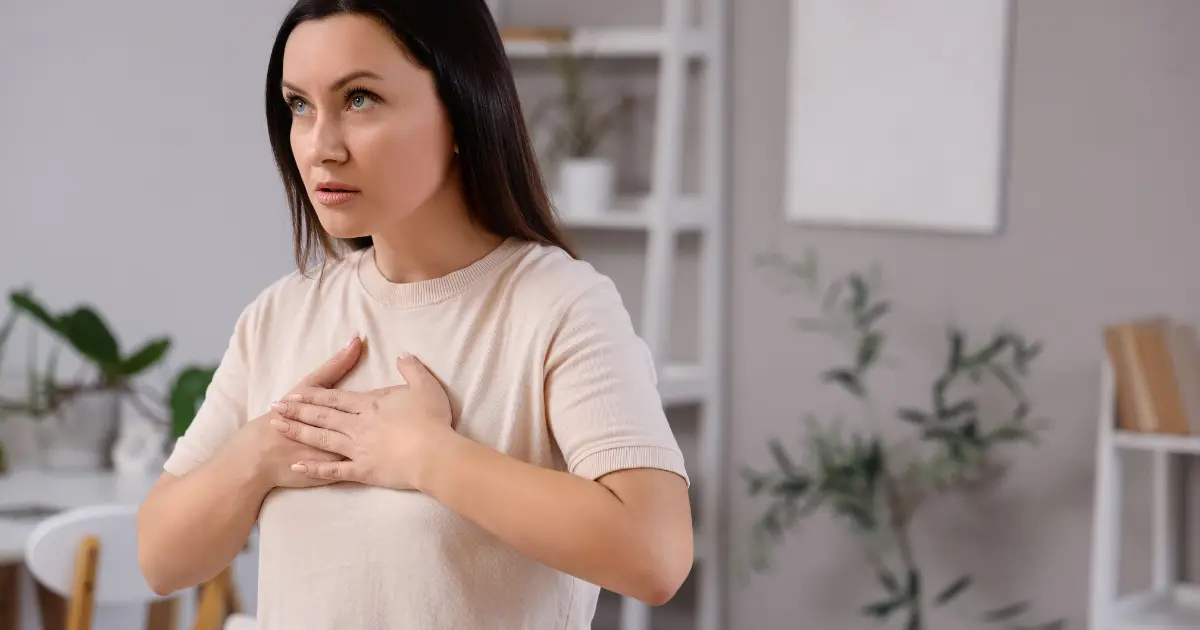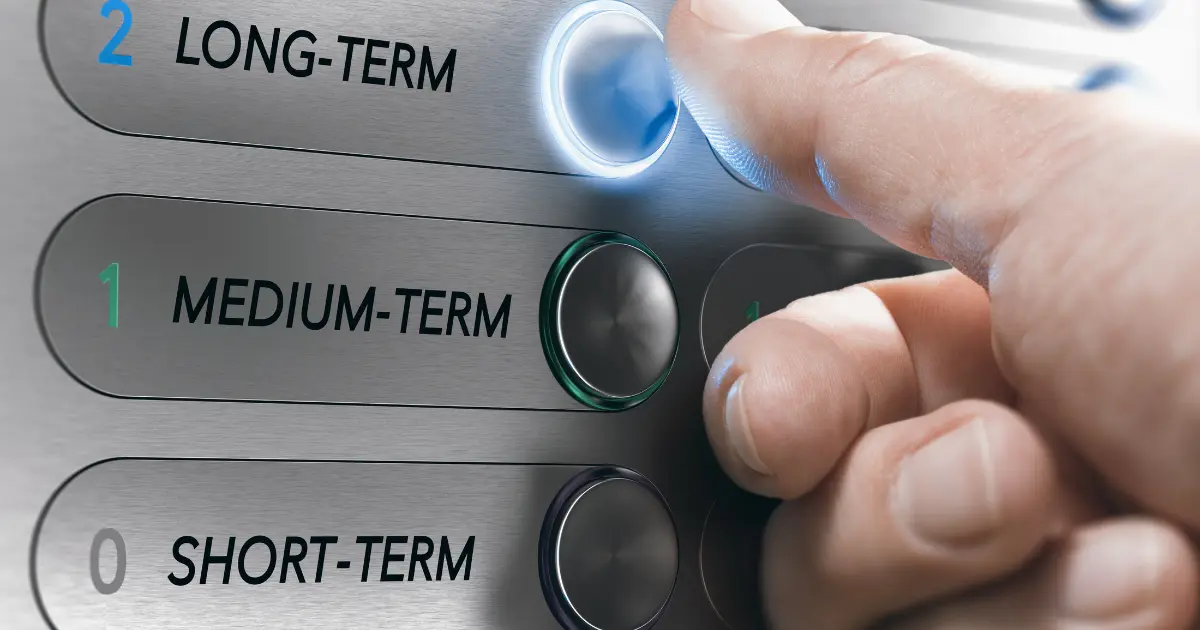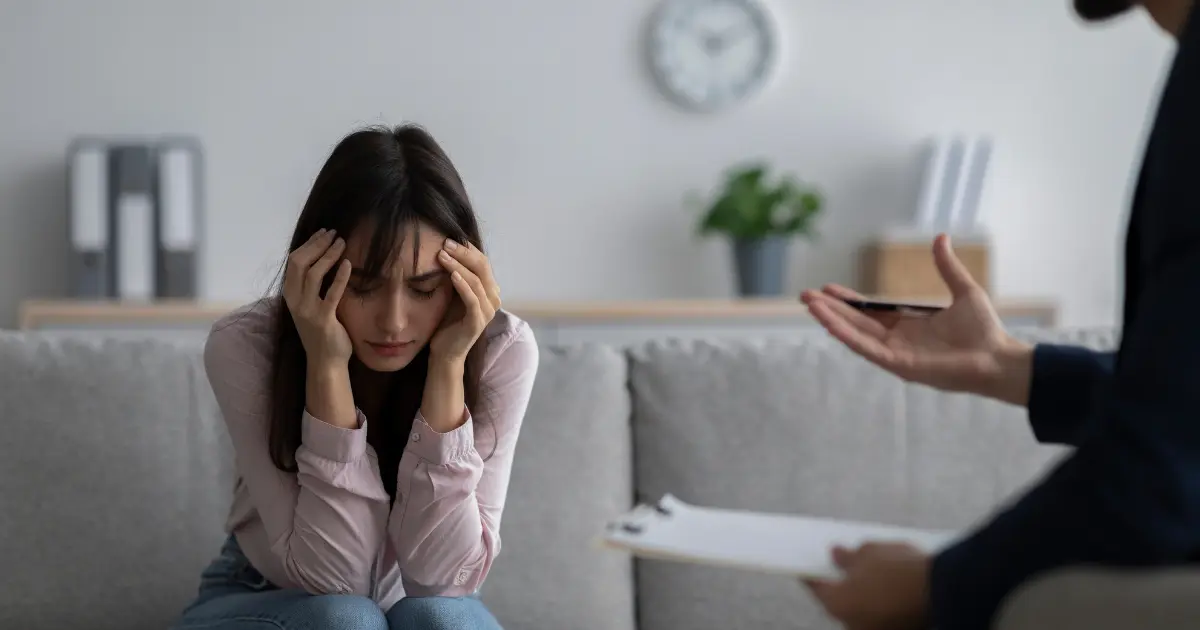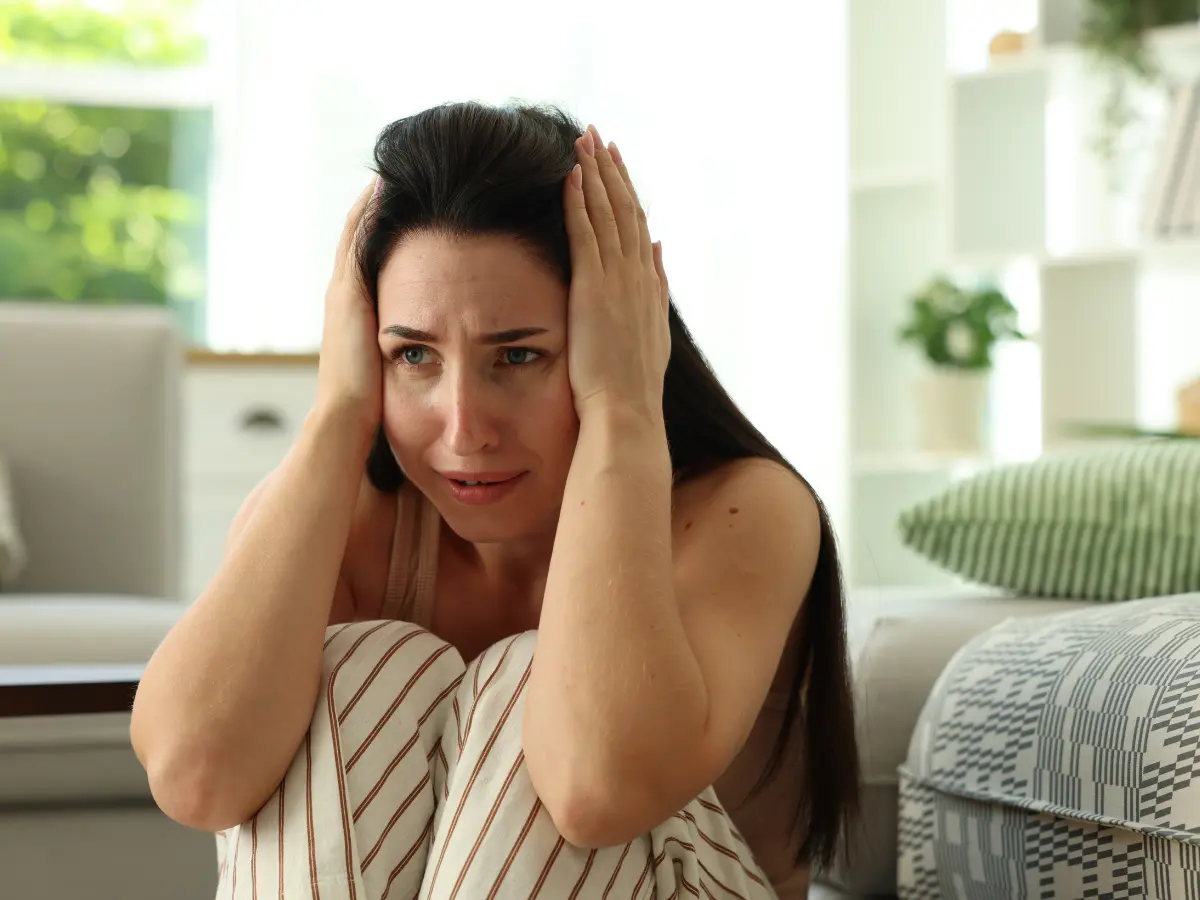Anxiety and panic attacks can strike without warning, leaving you feeling helpless and overwhelmed. Your heart races, your hands shake, and suddenly the world feels like it’s closing in. If this sounds familiar, you’re not alone. Millions of people around the world struggle with these challenges every day, and the good news is that there are effective ways to manage them.
Understanding Anxiety and Panic Attacks Before Learning to Cope
Before diving into how to cope with anxiety and panic attacks, it’s important to understand what you’re dealing with. Anxiety is your body’s natural response to stress, but when it becomes overwhelming or persistent, it can interfere with your daily activities and overall quality of life.

Anxiety disorders manifest in various ways, including generalized anxiety disorder, social anxiety, and specific phobias. Panic attacks, on the other hand, are sudden episodes of intense fear that trigger severe physical reactions even when there’s no real danger. During a panic attack, you might experience chest pain, rapid heartbeat, shortness of breath, dizziness, or an overwhelming sense of dread.
The physical symptoms of anxiety can be just as debilitating as the emotional ones. Your body’s fight-or-flight response kicks into overdrive, flooding your system with stress hormones like cortisol and adrenaline. This is why learning how to cope with anxiety and panic attacks requires addressing both the physical and psychological components.
Immediate Techniques for Managing Panic Attack Symptoms
When you’re in the midst of a panic attack, knowing what to do can make all the difference. These immediate coping strategies can help you regain control when anxiety strikes.
- Grounding techniques are powerful tools for managing acute anxiety episodes. The 5-4-3-2-1 method is particularly effective: identify five things you can see, four things you can touch, three things you can hear, two things you can smell, and one thing you can taste. This technique anchors you to the present moment and interrupts the panic cycle.
- Deep breathing exercises are among the most effective ways to calm your nervous system during a panic attack. Try the 4-7-8 breathing technique: inhale quietly through your nose for four counts, hold your breath for seven counts, then exhale completely through your mouth for eight counts. This controlled breathing activates your parasympathetic nervous system, which counteracts the fight-or-flight response.
- Progressive muscle relaxation is another practical method for managing panic symptoms. Start by tensing your toes for five seconds, then releasing. Move up through your body, tensing and releasing each muscle group. This practice helps you recognize where you hold tension and teaches you how to release it deliberately.
Long-Term Strategies for Anxiety Management and Prevention
Managing anxiety and panic attacks requires both immediate coping skills and long-term strategies. While quick techniques help during sudden episodes, lasting relief comes from addressing the root causes and building habits that reduce how often anxiety occurs and how intense it feels.

Cognitive Behavioral Therapy (CBT) is one of the most effective long-term treatments. It teaches you to identify negative thought patterns that fuel anxiety and replace them with more balanced, realistic perspectives. Over time, this shift in thinking changes how you respond to stressful or triggering situations.
Consistency also helps calm anxiety. Maintaining regular routines, such as set sleep schedules, meal times, and daily exercise, can bring structure and stability. Small lifestyle changes, like reducing caffeine and alcohol, also support emotional balance and help prevent anxiety triggers.
The Power of Physical Exercise in Reducing Anxiety and Stress
Exercise is one of the most underutilized tools for managing mental health challenges. Regular physical activity naturally reduces stress hormones and stimulates the production of endorphins, your brain’s feel-good neurotransmitters.
You don’t need to run marathons to experience the benefits. Even moderate exercise like brisk walking, swimming, or cycling for 30 minutes a day can significantly reduce anxiety symptoms. Yoga and tai chi are particularly beneficial because they combine physical movement with mindfulness and controlled breathing.
The key to making exercise an effective part of coping with anxiety and panic attacks is consistency. Find activities you genuinely enjoy, so you’re more likely to stick with them. Whether it’s dancing in your living room, playing a sport, or taking nature walks, the best exercise is the one you’ll actually do. To understand more about how your physical health and mental well-being work hand in hand, read this insightful article on the relationship between physical and mental health.
Building a Strong Support System and Seeking Professional Help
No one should face anxiety or panic attacks alone. Building a strong support system is essential for long-term mental health and recovery. Talking to trusted friends and family about what you’re going through can make a big difference. Be clear about the kind of help you need, whether it’s someone to listen, a companion for difficult moments, or just a friendly distraction.

For teenagers and young people in South Africa who are struggling with anxiety, panic attacks, or suicidal thoughts, the Angie Diedericks Suicide Prevention Program provides free professional counseling. The program connects adolescents aged 12 to 18 with trained counselors who understand their unique challenges and offer video call sessions for those in crisis.
Professional mental health support is a vital part of learning to manage anxiety effectively. Therapists can create personalized treatment plans, teach advanced coping skills, and help address deeper causes of anxiety. Don’t hesitate to reach out for professional help, whether from a doctor, psychologist, or specialized service like Angie’s program.
Mindfulness and Meditation Practices for Daily Anxiety Relief
Mindfulness has become a widely recognized method for managing anxiety and preventing panic attacks. It focuses on being fully present without judgment, helping to break free from anxiety’s pull toward past regrets or future worries. Even a few minutes of mindful breathing each day can make a difference.
Start by setting aside just five minutes daily to meditate. Find a quiet spot, close your eyes, and focus on your breath. When your mind wanders, gently guide it back without judgment. You can also use apps like Headspace, Calm, or Insight Timer, which offer guided meditations tailored for anxiety relief.
Mindfulness can also be practiced in everyday activities like walking, eating, or washing dishes. Paying attention to sensations, sounds, and smells keeps your mind anchored in the present. For deeper relaxation, try a body scan meditation, which helps you notice tension and recognize early signs of anxiety before they build up.

Creating an Anxiety-Friendly Environment and Daily Habits
Your environment plays a major role in shaping your mental health and stress levels. Creating calm spaces and adopting anxiety-reducing habits can make daily life more peaceful. Start by decluttering your surroundings since physical clutter often mirrors mental clutter and increases overwhelm. Organizing even small areas can feel meditative and rewarding.
Also, prioritize good sleep hygiene by developing a calming bedtime routine that may include dimming lights, avoiding screens, reading, or gentle stretches. Getting seven to nine hours of quality sleep each night helps keep anxiety in check.
Be mindful of what you consume mentally as well. Limit exposure to distressing news or social media that heightens anxiety, and instead seek uplifting content. To close your day on a positive note, keep a gratitude journal and write down a few things you’re thankful for. This simple habit helps shift focus from worry to appreciation, training your mind to notice the good more easily.
Nutrition and Its Impact on Mental Health and Anxiety
What you eat plays a major role in how your brain functions and can either ease or worsen anxiety symptoms. Understanding the link between nutrition and mental health is essential for managing anxiety and panic attacks effectively.
Complex carbohydrates such as oats, quinoa, whole grains, and sweet potatoes help regulate serotonin levels, promoting calmness and steady energy. Omega-3 fatty acids found in fatty fish, walnuts, and flaxseeds also support brain health and reduce anxiety. If you rarely eat fish, you can discuss taking an omega-3 supplement with your healthcare provider.
Staying hydrated is equally important since even mild dehydration can affect mood and focus. Aim for about eight glasses of water daily. Try to limit processed foods, excess sugar, and artificial additives, as they can cause inflammation and harm your mental health. Instead, focus on whole, nutrient-rich foods that nourish both your body and mind. For more simple, practical ways to support your mental well-being, explore our guide on mental health awareness tips for parents and teenagers.
When to Seek Emergency Help for Severe Anxiety
Most anxiety and panic attacks are not life-threatening, but knowing when to seek help is vital. If you ever experience thoughts of self-harm or suicide, reach out immediately. South African teenagers aged 12 to 18 can contact Angie’s suicide prevention program for immediate support, while adults can call the national suicide prevention hotline at 0800567567 or contact emergency services.
You should also seek medical help if panic attack symptoms last longer than 20 to 30 minutes, if you feel chest pain spreading to your arm or jaw, or if you have trouble breathing that does not ease with calming exercises. These may be signs of a more serious condition needing urgent care.
Finally, if anxiety or panic attacks are disrupting your daily life, work, or relationships, do not wait until a crisis occurs. Reaching out for professional mental health support early can lead to faster recovery and better long-term results.
Frequently Asked Questions About Coping with Anxiety and Panic Attacks
How long does a typical panic attack last, and what should I do during one?
Most panic attacks peak within 10 minutes and last about 20 to 30 minutes. Remind yourself it will pass, focus on deep breathing, and use grounding methods like the 5-4-3-2-1 technique. If you’re a teenager in South Africa struggling with severe anxiety or panic attacks, reach out to Angie’s professional counselors for free support and guidance.
Can anxiety and panic attacks be cured completely, or will I always have them?
Some people fully overcome anxiety, while others learn to manage it so well that it no longer controls their lives. The goal is not to eliminate all anxiety but to reduce its intensity and build healthy coping skills. With the right treatment, therapy, and lifestyle changes, most people experience major improvement in their symptoms and overall well-being.
What’s the difference between feeling anxious and having an anxiety disorder?
Everyone feels anxious at times, but an anxiety disorder is more intense and long-lasting. It involves constant worry that disrupts daily life and often comes with symptoms like sleep problems, muscle tension, or panic attacks. If anxiety is affecting your work, relationships, or well-being, consider speaking with a mental health professional.
Wrapping Up…
Learning how to cope with anxiety and panic attacks is a journey, not a destination. There will be good days and challenging days, but with the right tools, support, and persistence, you can significantly reduce anxiety’s impact on your life and reclaim your sense of peace and control.
Remember that seeking help is a sign of strength, not weakness. Whether you start with self-help strategies, reach out to loved ones, or contact professional services, taking that first step is what matters most. Every technique you learn, every breathing exercise you practice, and every small victory over anxiety builds your resilience and confidence.
If you’re a young person in South Africa struggling with anxiety, panic attacks, or mental health challenges, don’t face this alone. Reach out to Angie’s free counseling services today for professional support from trained counselors who genuinely care about your well-being. Help is available, hope is real, and recovery is possible. Take the first step toward better mental health today.





